HRV on Vertical
-
@Miš-Kan thanks, didn’t knew that !
-
I have only had my SV about 10 days, so not enough to get the full 14 day average. On top of that I have had a really bad cold over the last week, so maybe my current HRV is a bit low because of that - currently averaging 21 ms (Resting HR is 55, and I am 62), with last night only 19ms ‘apparently’, although I feel I am through the worst of the cold. I am ‘reasonably’ fit (for my age?), but it still seems rather low.
I’ll keep watching over the coming weeks… -
@Miš-Kan said in HRV on Vertical:
@Tieutieu Perhaps more than an aid in training, HRV is important as a warning against a heart attack condition or problems with heart function, because according to my friend, when the heart beats to the rhythm of the metronome (HRV goes towards 0), we are about to have a heart attack.
Of course, this is not a scientific explanation, but it seems logical and reasonable to meDo you have any scientific proof of this apart from “friend” and “seems logical”?
To me it sounds a lot like an urban legend…
-
@Egika. While trying to get some informations, I found that (french partially english). But there must be more litterature about it.
“Coronary heart diseases : Several studies indicate that a drop in HRV is associated with the risk of cardiovascular and coronary pathologies, hypertension and insufficiency cardiac [10].”
-
@Egika First of all, I should say that I am a technician and not a doctor, so I interpret some explanations in my own way. Since you want a more in-depth medical read, I suggest starting with one of the articles that summarizes the following:
Low heart rate variability (HRV), a marker of cardiac autonomic dysfunction, has been associated with increased all-cause and cardiovascular mortality. We examined the association between reduced HRV and incident stroke in a community-based cohort.
Source: https://www.ahajournals.org/doi/10.1161/STROKEAHA.116.012662Urban legend or scientific fact? Judge for yourself.
As I said, I simplified and it seems logical and reasonable for me. -
@Miš-Kan right. Heart stress and low HRV values go along with each other.
Before I understood “once HRV reaches 0, you get a stroke”. And while the first correlation makes sense, the latter would be wrong simplification. -
@Egika Crikey… Should I be worried (19ms)? Or get it professionally measured?
-
@Swaddy61 A single value means absolutely nothing (what’s your range?), and comparing people’s HRV values is totally meaningless.
-
@Swaddy61 Hi. I’ve brought this same topic up in the Suunto Race forum, as my HRV is totally not correct in Suunto Race.
Since I’ve owned it, my nightly HRV score is around 15, which I was about to go to my doctor to discuss as it’s dangerously low.
Background: I’m 55, ex elite athlete in rowing and cycling, still compete in trail running, overnight resting HR is 48, and Suunto App is currently saying ready for training etc. BP is typically 120/80.
As I have a Polar H10 strap, before going to the doctor, I decided to cross reference a few HRV apps - Elite HRV and HRV4training.
BOTH apps, when paired with my Polar band, gave consistent readings over 2 days between 50 and 60 HRV score.
So, if your Vertical is giving you scary HRV scores, try a Bluetooth heart rate belt and an HRV app.
Personally I think this is a Suunto watch and Suunto app error when the app says my HRV score, at 14 this morning, is ‘normal’,when most online info says that score would mean I’m at risk for catastrophic illness or even death.
My HRV score this morning with Elite HRV was 52.
-
@Miš-Kan I think people with very low HRV have usually a “worse” lifestyle, don’t do much sports, so there’s a higher risk of any health issues in general. That’s logical. But the conclusion of this study was:
Lower HRV was associated with higher risk of incident stroke among middle-aged adults with prevalent diabetes mellitus but not among people without diabetes mellitus.
-
@tomasbartko I believe that on this forum, most of us are in above average shape, so seeing low HRV scores is a bit puzzling.
At age 44 my minimum HR at night is mostly around 43, VO2 on the watch above 53 so constant scores of around 32 for the HRV ring all sort of bells in my head. Maybe it is genetics, maybe I am to stressed or maybe the algorithm on the watch just does not work for me.
-
Hello all,
I am 57 years old and exercise 4-5 times a week, run a sub 4 hour marathon at my leisure, but only have a very low score of 13ms on average…
I usually feel good, full of energy. But I find the HRV value a bit disturbing now that I see yours.
I take all the wisdom that comes from the internet with a grain of salt, but it doesn’t sit well with me.
Be sure to call the doctor for clarity. -
I’m 49 years old and have a fairly low heart rate (under 40 beats at rest). HRV analysis works well for me and gives me information that’s fairly consistent with my state of fitness and lifestyle.
The problem is that the data is not identical between SA and Vertical.
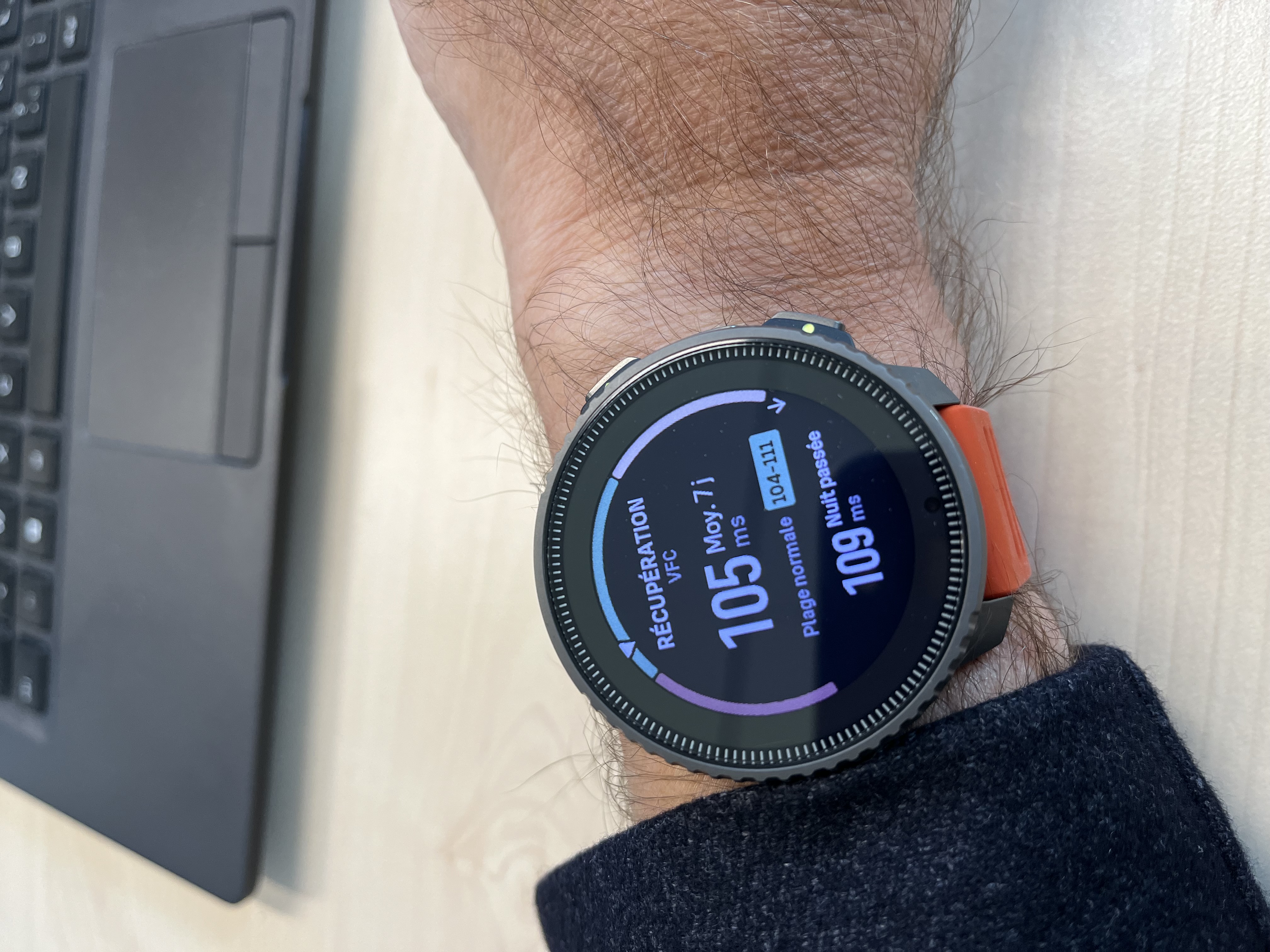
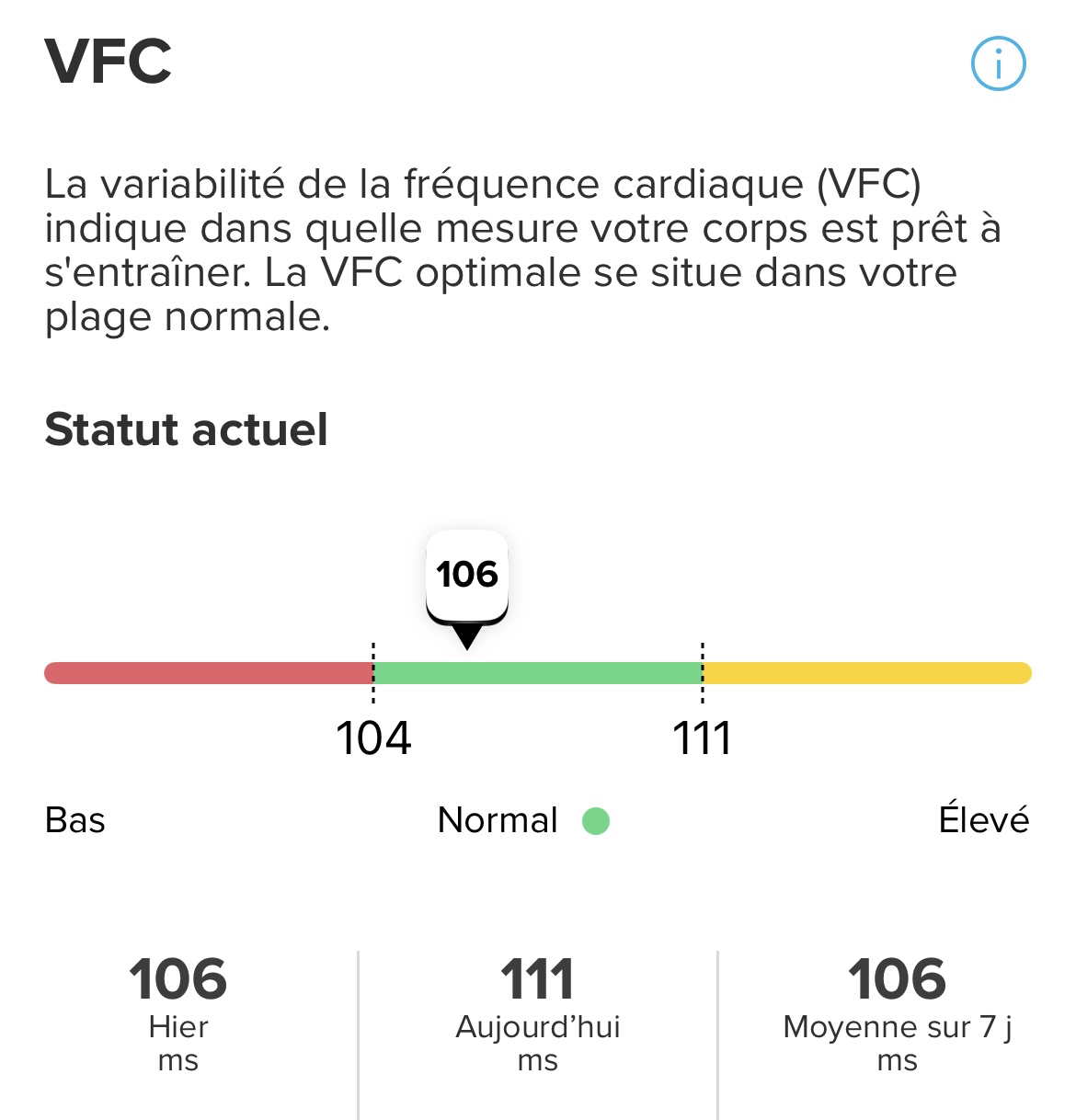
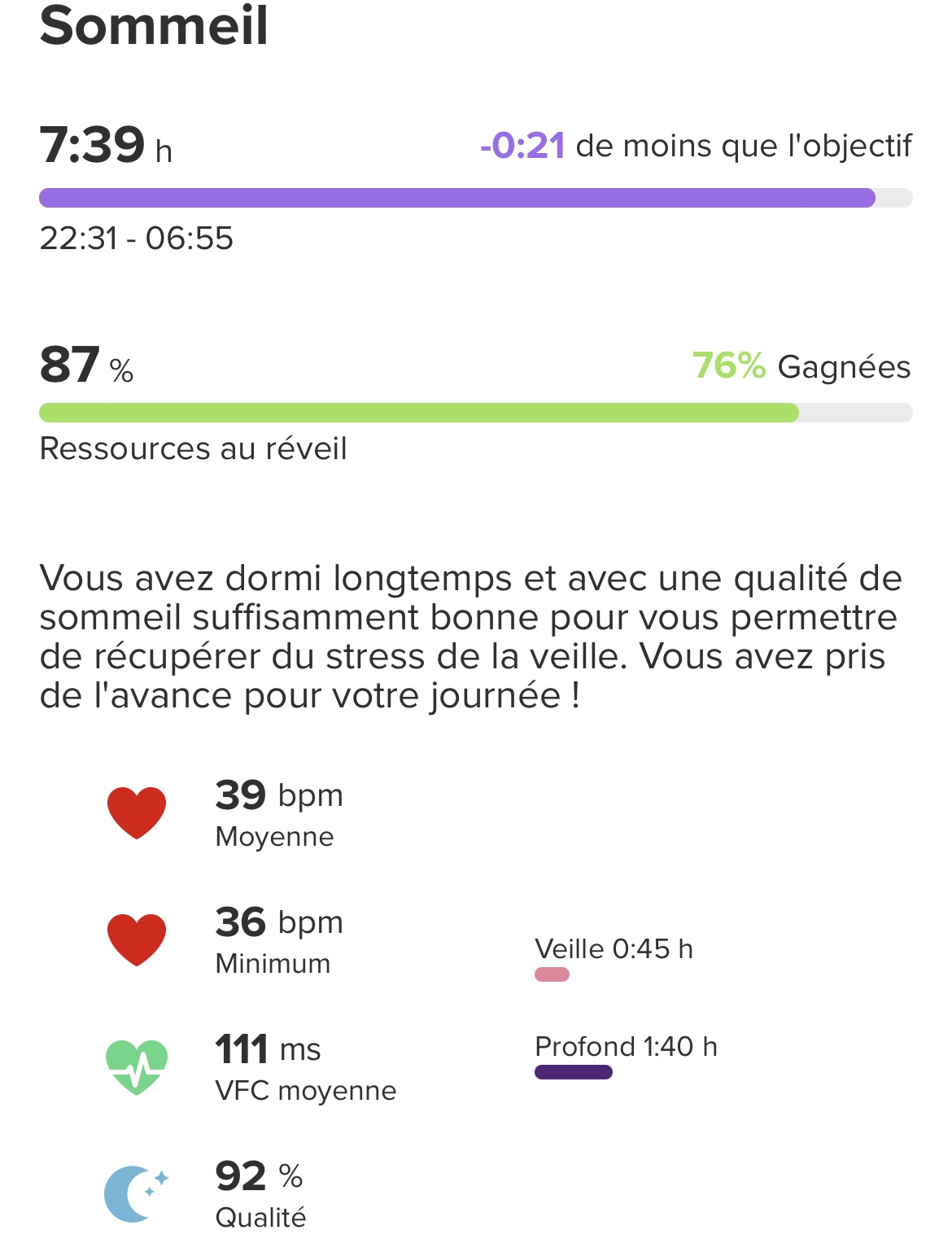
-
With the Vertical I never reached a value over 29. Regarding the range or delta of different nights the low values change as in every other app measuring the hrv.
My average hrv value is 42 over the years (63 years old, not lazy, captured with Garmin Connect).
To interprete the different values with different watches and apps you must know the scenery behind the measuring of the heart rate and the used algorithms.
I think this information is not available in Suunto’s strategy to display the nightly average of the hrv.
I attach two pictures of my hrv (last night, pic 1 Garmin Forerunner, pic 2 TicWatch 5 Pro and project Stila). You can see a similar progression of the measured values. The absolute values are different. But in both graphs I get an average value of 37 ms, which is a bit low as usual after yesterday’s hike in the snow. Although the absolute values are higher in the second graph.
In the third image (project Stila), the properties of the measured values from picture 2 (last night) are broken down, which shows how complicated the evaluation actually is.
Ultimately, it is just an indication that, in addition to your own feeling, can provide an indication of the scope and intensity of the upcoming training. I wouldn’t overestimate that.
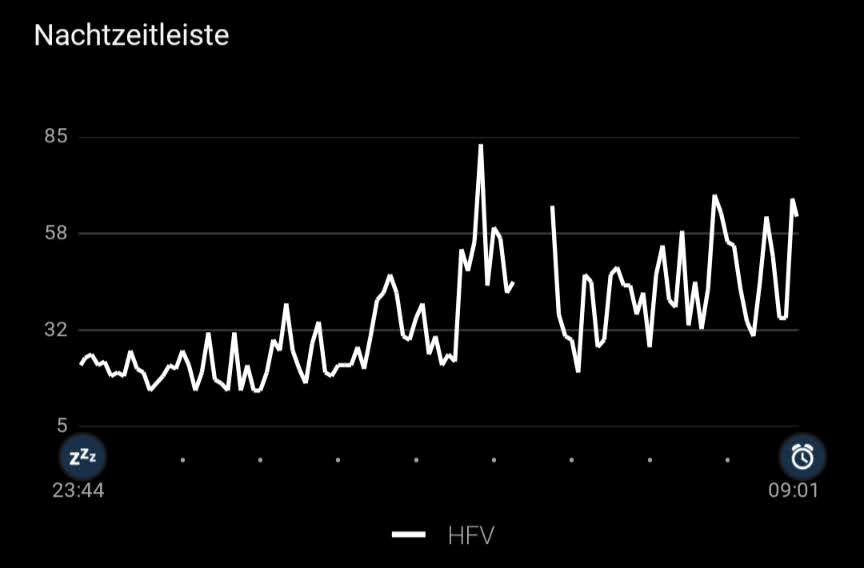
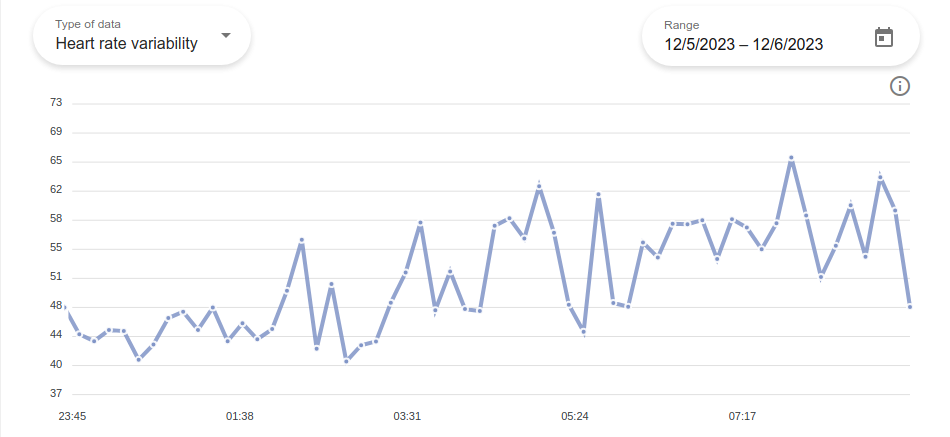
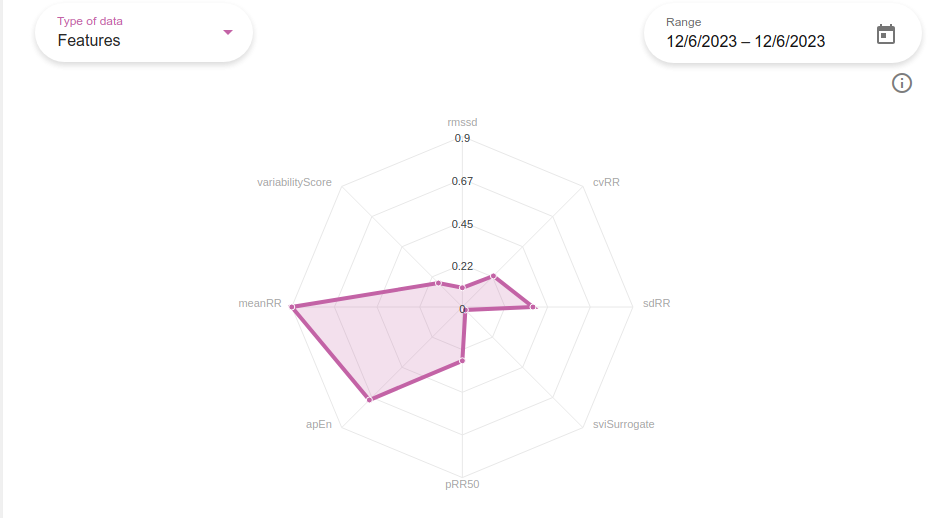
-
Hi, I’m 34 years old. My average heart rate when I’m sleeping sits at 55-60 and minimum 53-55.
This is my HRV range 52-55 recorded for over 2 weeks. I think it works well if you compare values to the HR when sleeping.The lower your heart rate when sleeping the higher your HRV. I’ve seen 100ms + HRV these guys are machines very fit athletes. It’s as simple as it is. For average peep like me this is it.
@Frederick-Rochette said in HRV on Vertical:
I’m 49 years old and have a fairly low heart rate (under 40 beats at rest). HRV analysis works well for me and gives me information that’s fairly consistent with my state of fitness and lifestyle.
Jesus Christ! Your HRV it’s ridiculously high for you age. Congrats!
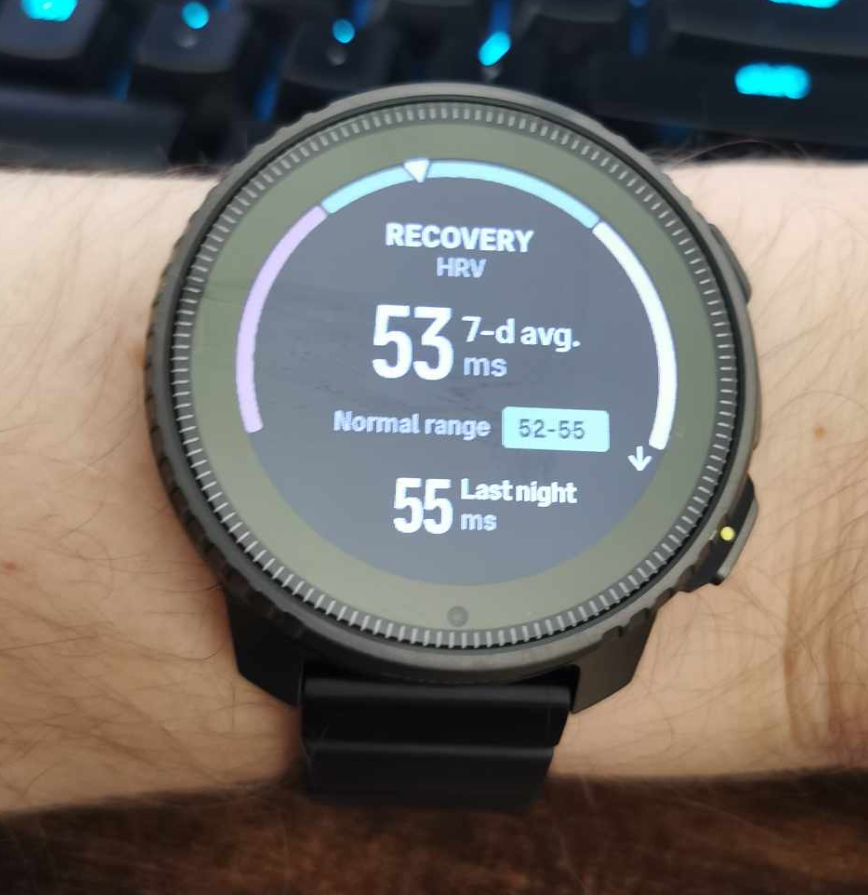
-
@Marton-Attila Thanks! I rarely stay on my sofa

-
@Marton-Attila la mia ha una media di 41 MS…com’è??
-
This reminds me the Whoop reddit channel, people comparing their HRV as it was something that should be the same for everyone.
Higher is (generally) better, but each person has a different baseline (therefore the reason to compare to your own baseline and not a fixed value), and it is not something that can be trained indefinitely, it has a genetic component.
Now the people that see very low values and have checked with other devices that do exactly the same (average over sleep tracked time), with both devices recording the same amount of sleep too, may have found that one device works better for them then the other, something that OHR is very prone to due to technology. For me Vertical/Race/S9PP and Oura ring give the same sleep HRV, plus or minus a couple of milliseconds.
-
@isazi said in HRV on Vertical:
This reminds me the Whoop reddit channel, people comparing their HRV as it was something that should be the same for everyone.

-
@Marton-Attila well also “regular” people can have high HRV, it’s also genetics. My girlfriend has a HRV of about 90 and she’s not a super trained athlete. Her resting HR is super low though. So it is highly individual. Imho it makes no sense to compare it with others, or even “table values”. What matters are trends over time for each individual. Just my two cents
